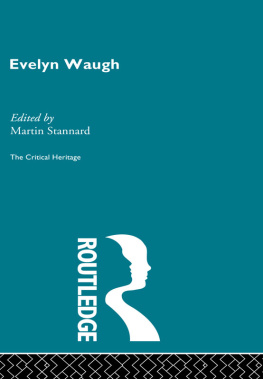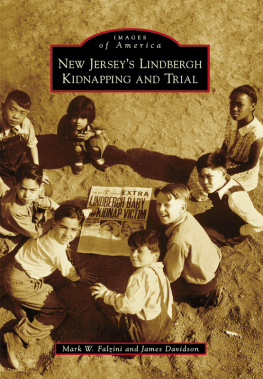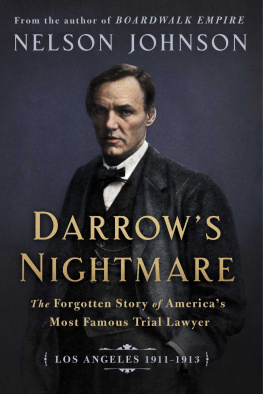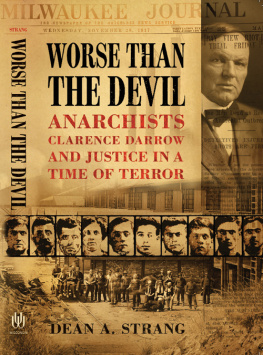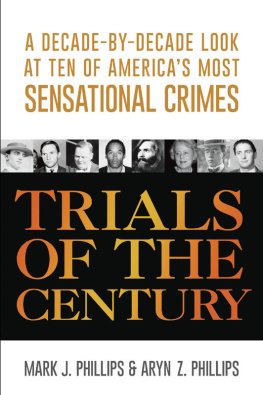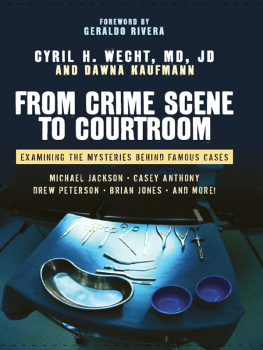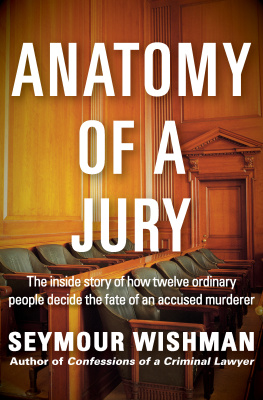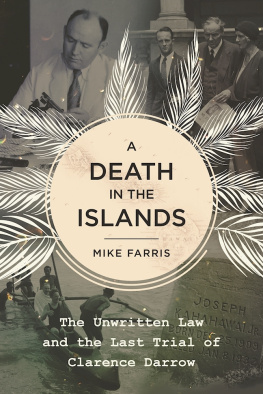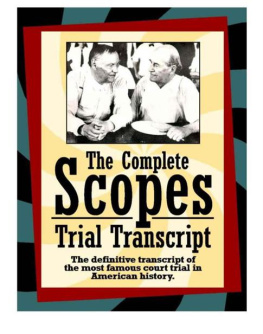Acknowledgments
This book began with a conversation I had with Susan Rabiner four years ago, while in New York on other business. Susan had been the editor of my first two books many years earlier, when she was at Oxford University Press. Since that time we have remained friends, as she went on to other publishing houses before founding her own literary agency and I moved five thousand miles away to my present home in Hawaii. It is impossible for me to thank her adequately for all the support she has provided over the yearsand especially with this bookwithout sounding maudlin. So, instead, I have dedicated the book to her.
One of the things Susan told me as contract negotiations were proceeding was that I would be extremely fortunate to have Wendy Wolf as my editor. As always, Susan was right. Wendy has been so enthusiastic and supportive of the project, and so charming and insightful, that I hardly noticed when her scalpel left page after page of an overlong manuscript on the cutting room floor. Actually, I did notice, and nearly wept on occasion, but its a far better book because of her. Assistant editor Hilary Redmon has been a great help on several fronts, and has never failed to be diplomatic, even when she had good reason not to be. Adam Goldbergers copyediting was at once both precise and sensitive, a rare combination.
In Hawaii, Haunani-Kay Trask read the manuscript with care and a wealth of knowledge. The Trask family has been a part of Hawaii politics for almost a century. Her grandfather David Kaukaohu Trask was deeply immersed in the Massie affair; he acted as Ben Ahakuelos attorney during Ahakuelos first brush with injustice in 1929 and served as one of prosecutor John Kelleys pallbearers in 1938. Elected to numerous political offices, and a vociferous critic of Admiral Stirling and the plutocrats of the Big Five, he demanded an apology from Honolulu Times editor Edward Irwin for one of his characteristically racist editorials and wound up in a fistfight with him on the floor of the Territorial Senate. The Trasks continue to be on the political front lines, and Haunanis insights were invaluable.
Two other people in Hawaii provided extraordinary support. For almost three years Kaiulani Akamine worked as my research assistant, with the generous support of Manu Kaiama, director of the University of Hawaiis Native Hawaiian Leadership Project. Whether it was drudge work, such as plowing through and reproducing thousands of pages of microfilmed newspaper stories and other reports, or more creative detective work in the Bishop Museum and First Circuit Court Archives, Kaiulani was never less than superb. As the end of the writing drew near, my dear friend Eiko Kosasa took time out from her own busy writing and teaching schedule to read the manuscript with inordinate care. She is an expert on local Japanese politics and culture, and her insights and corrections proved invaluable.
One day, while pressing ahead with the latter stages of writing, I received a telephone call from Mark Zwonitzer of Hidden Hill Productions in New York. He had been contracted to produce and direct a documentary film on the Massie case for WGBH and the PBS series The American Experience. Wary of having my hard-won research used by a likely competitorwhose film almost certainly would be released before my book was publishedI was less than enthusiastic when he asked me to appear in the film and talk about my findings. I did agree to have dinner with him, however, when he arrived in Honolulu to do research. Out of that dinners conversation came one of the most fruitful collaborations I have ever enjoyedwith one of the most intelligent and thoughtful people I have ever met. Rather than compete with one another, Mark and I spent the better part of the next year openly sharing ideas, information, documents, interviews, and photographsbecoming friends in the process. It has been a delight to work with him and with Jamila Wignot and Yuka Nishino, his extraordinarily engaging and talented associates. Without Jamilas assistance, in fact, this book would not contain most of the photographs that it does.We were even able to arrange things so that the publication of the book and the initial airing of the filmThe Massie Affairoccurred on the same day.
Many other people were generous with their time and suggestions on specific matters, including Floyd Matson, Dennis Ogawa, Michael Forman, Momi Kamahele, and Karl Kim of the University of Hawaii, and Roland Tharp of the University of California at Santa Cruz. Eddie Croom, curator of the Honolulu Police Department Museum, provided me with documents and an afternoon of good conversation. Stephanie Kelly donated a rich collection of Hawaiian and hapa-haole sheet music, while Malcolm Rockwell shared his extensive knowledge of that music and much more.
Several people with intimate knowledge of central figures in the case graciously provided information that would not have been available elsewhere, including Queenie Cavaco and Deena Ahakuelo (Ben Ahakuelos daughter and niece, respectively), Ellen Hyer (Agnes Peepless daughter), Nanette Purnell (juror Walter Napoleons granddaughter), James Whiton (grand jury foreman Harry Fransons grandson), James Valuckas (Judge Albert Cristys grandson), and others who asked that their names not be mentioned. Wilfred Mitsuji Oka, who grew up with the men accused of rape, spent several long afternoons with me, discussing his friends and the world they inhabited. Others with memories from that time included Gladys Ainoa Brandt, Judge Sam King, Dr. George Schnack, Dr. Rodney T. West, and Arthur Trask. Shirley Tavares Wetzel faxed me a copy of an important document not otherwise available, while Joseph R. Svinth, Curtis Narimatsu, and Francis Hookano provided further information. In addition, Mark Zwonitzer shared with me transcripts of interviews he conducted with Ruthie Judd, Kay Napoleon, Ah Quon McElrath, and Judge Ronald Moon.
The heart of a project such as this resides, of course, in libraries. I have benefited from the extraordinary expertise and generosity of numerous people, beginning with Lynn Davis, head of the Preservation Department at the University of Hawaiis Hamilton Library; Dore Minatodani of the Hawaii-Pacific Collection at the same library; and De Soto Brown of the Bishop Museum Archives in Honolulu. Luella Kurkjian, the exceptionally knowledgeable chief of the Historical Records Branch of the Hawaii State Archives, went out of her way to be helpful, as did archivist Patricia Lai. Marlene Paahao and Sandra Harms, also at the Hawaii State Archives, were very helpful as well. Mary Ellen Rogin, archivist in the Theater Collection at the New York Public Library for the Performing Arts at Lincoln Center, and Nancy Sensil of the University of Denvers Westminster Law Library provided access to the radio scripts of Walter Winchell and Lowell Thomas.
At the National Archives and Records Administration, Pacific Region, Robert Glass was a generous, genial, and expert host, guiding me to materials I never would have located without him. Lynda Corey Claassen, director of the Mandeville Special Collections Library at the University of California, San Diego, went out of her way to provide access to essential volumes of the Richardson Report that were not readily available elsewhere. Melanie Francis of the American Heritage Center at the University of Wyoming Library helped locate letters of Clarence and Ruby Darrow in the Harry Elmer Barnes Collection, while the staffs overseeing the Darrow Collection at the Library of Congress and the newspaper and photograph collections at the San Francisco Public Library were unfailingly helpful with all my requests. At the Murray Research Center of the Radcliffe Institute for Advanced Study, Harvard University, research assistant Kathleen Ferguson located and copied for me E. Lowell Kellys decades-old questionnaires on personality and marriage.


